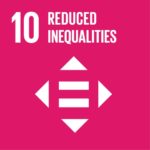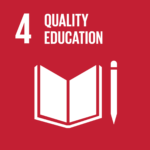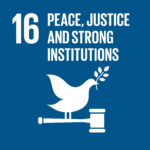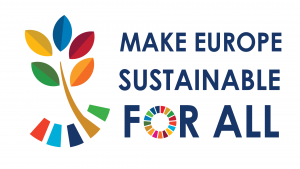Global education through an intercultural lens
Competences consist of attitude, skills and knowledge. Therefore, the development of global competences through global education requires not only information but also an ethnorelative attitude with intercultural skills. This is in order to relate to the world with an intercultural sensitive approach. According to the Bennett scale of intercultural sensitivity the first stage of becoming interculturally sensitive is denial. In the denial stage we are lacking of knowledge and skills which leads to a denial attitude. Living in our own bubble denying the existence of differences and other ways of living. In this stage the global education competence is not developed nor tackled. The barriers can vary from geographical to social distance. This is in the core of ethnocentrism. Through global education people can challenge their own barriers through exposure to new information within new contexts and settings like being in intercultural learning environments and discussions or through media. To get out from the denial stage indicated by the Bennett scale we need much more than knowledge. Like the American poet Maja Angelou said “I’ve learned that people will forget what you said, people will forget what you did, but people will never forget how you made them feel.”. The statement of Angelou goes in line with the elements of a competence where we need an attitude that is impacted by feelings and not only skills and knowledge. Here comes the importance of creating engaging and safe environments where people are free to feel and express without being afraid of judgment and oppression. An approach of inclusive educational environments toward interculturalism and to eliminate all forms of discrimination. It is one of the main core values for the achievement of the Sustainable Development Goal 4, quality education. After getting poorly informed or even accidently exposed to different cultures and approaches the second stage in the intercultural sensitivity scale is defense. This stage can be related to Xenophobia, where people are taking a defensive approach because they are not correctly informed about other cultures not only on an informational level but also on an emotional level. In the stage of defense there is poor information connected to lack of empathy that leads to fearful attitude. Fear from something that we do not fully understand and therefore we cannot fully empathize with. In this stage a various of hate statements can appear like “They came to destroy our country, they want to change our culture, they came to steal our jobs or they came to live on our cost”. In this stage we need quality education and global education the most, because in this stage we are hindering sustainable development by being driven by fear instead of the prosperity of interculturalism and the positive impact of migration in the development of our resources and mutual wellbeing. In this stage citizens are shifting an eye away from main global issues that affects our local and global realities, like the exploitation of the global south. This exploitation increases inequalities, tax heaven, tax injustices and unfair trade practices. It leads to discriminative policies and negative nationalism of closed borders that hinders international cooperation for development and our human rights for freedom of mobility and peace. Emphasizing on educational approaches such as the pedagogy of the oppressed by Freire can contribute in the development of empathy by providing information on a human to human level. This can shift us from the defense stage to the minimization stage in the Bennett scale of intercultural sensitivity. In the minimization stage we are still living with an ethnocentric approach, because we are minimizing interculturalism and our differences rather than employing them toward our mutual wellbeing and for the achievement of the Sustainable Development Goals. In this stage we are acknowledging the existence of other cultures but we do not accept it. We can identify this stage in the narrative of assimilation of one culture into another rather than integration between cultures. We still look to the world from an ethnocentric point of view. We perceive other cultures are wrong. In the same time, we do not blame the people who were born in other cultures. We welcome them but we ask them to fully assimilate in our culture. In this stage we are not developing because we are not exchanging good practices, we are not learning from our differences and therefore we are limiting our opportunities for cooperation toward wellbeing and better living. To develop our intercultural sensitivity further and to proceed from ethnocentrism to ethnorelativisim we need to stimulate an attitude that other cultures are not wrong or right they are just different. We need this to shift from the minimization stage to the acceptance stage in the intercultural sensitivity scale. The acceptance stage is the first stage of ethnorelativism. We implement the experiential learning cycle by Kolb in this stage. This is where people have a first-hand experience through simulation activities and role playing followed by reflective questions on attitude and skills from an intercultural lens. This is what we follow in our educational programs under the framework of Faces Of Migration program. In these programs the participants complete the full experiential learning cycle from experience to reflection, evaluation and then repeating the experience again with full awareness, like Einstein said we do not learn from the experience but we learn by reflecting on it. In our educational programs to shift from the minimization to acceptance stage we answer the questions of why we need to understand our global issues and how accepting them rather than minimizing them can lead to the improvement of our lives and wellbeing? Being in the acceptance stage is satisfactory to a certain extent because we are shifting from ethnocentrism to ethnorelativism but it is not enough. After acceptance of global issues and different intercultural approaches we need to learn how to adapt them in our life goals and missions toward the achievement of the Sustainable Development Goals. Like this we can proceed further to the adaptation stage in the Bennet scale of intercultural sensitivity which we consider as an important path for the development of global competences. Through the experiential learning cycle, we give a rich educational environment for participants coming from various backgrounds to practice and reflect on their global competences and what they can do better to employ it in their careers and life missions tackling the magical circle of why, what and how. In our global educational programs in this stage we facilitate a learning process where participants can view the positive potentials of globalism and interculturalism. They come up with action plans based on empathy. They explore how they can align their personal path with their professional path in an intercultural sensitive way for the achievement of the Sustainable Development Goals. When we find these answers, we reach the highest stage of intercultural sensitivity which is integration. The participants became competent in integrating global issues with their local realities as inseparable. Therefore, in this stage integration means positive change for a Europe that is sustainable for all. Resources: Laurens van Apeldoorn (2019) Exploitation, international taxation, and global justice, Review of Social Economy, 77:2, 163-183, DOI: 10.1080/00346764.2018.1525759 Lee Olson C, Kroeger KR. Global Competency and Intercultural Sensitivity. Journal of Studies in International Education. 2001;5(2):116-137. doi:10.1177/102831530152003 Li, M., Mobley, W. H., & Kelly, A. (2013). When Do Global Leaders Learn Best to Develop Cultural Intelligence? An Investigation of the Moderating Role of Experiential Learning Style. Academy of Management Learning & Education, 12(1), 32-50. doi:10.5465/amle.2011.0014


